
As a lease term comes to an end, rental property owners need to decide how they will approach the renewal negotiations, and what they’ll ask for in rent for the new lease term.
In California, this conversation opener will depend on the local and state rent control laws. The amount of any rental increase will have to be within the legally permissible amounts, assuming your rental property is included in the rent stabilization laws. Even if your property is exempt, you’ll need to remain competitive in the rental market if you want your tenants to stay in place and sign a lease renewal.
How much should you raise the rent?
This is a question that’s not always easy to answer. Most residents expect their rent will increase when they renew a lease, but you don’t want to raise the rent so much that those tenants decide to look elsewhere for a home that’s more competitively priced.
We work with owners and landlords to establish and negotiate rental increases all the time, and this is what we can tell you.
Learn How to Read the Room
Are your tenants enjoying their rental experience?
Before you introduce a new rental amount, get an idea of what your tenant’s plans are. If they’re sending you their notice to vacate, you won’t necessarily be raising the rent; instead, you’ll establish a new rent for fresh incoming tenants. But if your tenants indicate that they’re likely to stay in place, you want to consider what their expectations are in terms of the new lease agreement and the new rent. You may find yourself agreeing to a new appliance or a professional carpet cleaning in order to win their acceptance of the higher rental amount without chasing them out of your property.
Vacancy and turnover are expensive and stressful. You’re hoping to avoid that by keeping your good tenants in place. If you have a positive and professional relationship with your residents, you should be approaching the lease renewal with a general idea of whether they’ll be likely to stay in place or certain to leave.
Get a Sense of the Rental Market
Just like when you establish an initial rental value, the market will drive how you price your property. Before you establish a rental increase, get an idea of what homes similar to you are renting for in the specific neighborhood where your rental is located. Have rents gone up in the last year? Have they slipped or stabilized? You need to know, otherwise you run the risk of establishing a rent that’s not accurate.
Make sure you have access to good data. Online rental sites like Zillow and HotPads will tell you what homes are advertised for, but they won’t tell you what they ultimately rent for. As property managers, we have data and analytics that tell us what comparable rental values are, how long those properties are on the market and who is ultimately renting them. We can share our insights to help you establish a rental increase that’s profitable but also accurate and competitive. Don’t look for data that supports the rent you want to charge. Instead, invest in real numbers and good information.
How Easy Would It Be to Find a New Tenant?
As you decide how much you plan to raise the rent, consider whether it would be easy or difficult to find a new tenant. If the market is hot, and demand is high, you can likely raise the rent comfortably to the maximum amount that good tenants would be willing to pay. They know that finding a new home might be challenging. They’ll want to avoid the cost of moving, the process of moving, and the other expenses that come with such a big change. But, if the market is losing steam and there’s low demand and a lot of inventory, you might want to keep your rental increase more competitive. Focus on retaining your tenants because you’re not sure how quickly you’d be able to find new tenants.
Competition is an important part of increasing the rent. Make sure you’re earning more than you did last year, but don’t push good tenants out the door. That will only lead to large expenses and less profitability.
Legal Limits to California Rental Increases
Make sure you’re following the rent control laws when you’re increasing the rent on a property that’s governed by The Tenant Protection Act of 2019. Typically, this law covers multi-family units that were built at least 15 years ago. Newer buildings and single family homes are generally exempt. If you’re required to follow rent control restrictions, remember that:
- You can only raise the rent twice in a 12-month period, but both times total cannot exceed the maximum allowable increase.
- You cannot raise the rent more than 5% plus the established cost of living, which is set by the Consumer Price Index (CPI), or 10%, whichever is lower.
- You cannot raise the rent more than 10% in a year.
Communicating with Tenants
 Communicate your rental increase with enough notice to existing tenants. California law requires at least 30 days of notice, and your lease agreement may instruct you to provide 60 days of notice. Send the notice of increase in writing, and provide details that the tenant will need. State the new rental amount and the date it will go into effect. Don’t hesitate to explain the reason for the increase. Tenants should know that maintenance and insurance costs have increased and that rental prices across the region have gone up.
Communicate your rental increase with enough notice to existing tenants. California law requires at least 30 days of notice, and your lease agreement may instruct you to provide 60 days of notice. Send the notice of increase in writing, and provide details that the tenant will need. State the new rental amount and the date it will go into effect. Don’t hesitate to explain the reason for the increase. Tenants should know that maintenance and insurance costs have increased and that rental prices across the region have gone up.
Keep the notice professional. Your goal is not only to earn more rent during the next lease term, but also to preserve your relationship with tenants. The relationship you have will impact how they receive the news of the higher rent and whether there’s any pushback or threats to move out.
We know that rental increases can be tricky to deal with. Don’t try to navigate this process alone. We invite you to leverage our technology, our market data, and our experience with tenants, rental properties, and rental values throughout the Bay Area. Please contact us at Bayside Management. We lease, manage, and maintain investment properties in San Mateo and around the Peninsula, including San Carlos, Redwood City, Pacifica, San Bruno, Half Moon Bay, Daly City, Mountain View, Foster City, and Palo Alto.
 Peter Boda
Peter Boda Jeff Hacker
Jeff Hacker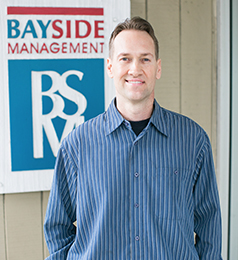 Dylan Motchar
Dylan Motchar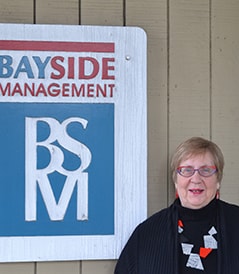 Barbara Boyd
Barbara Boyd Joanelle Russell
Joanelle Russell Mary Wiegmann
Mary Wiegmann Joseph DeNoia
Joseph DeNoia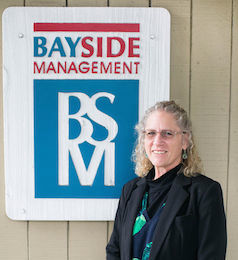 Beth Nagy
Beth Nagy Jasmin Peraza
Jasmin Peraza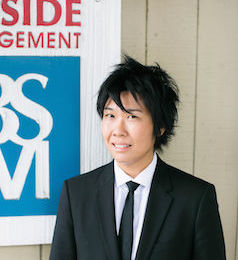 Carmin Wong
Carmin Wong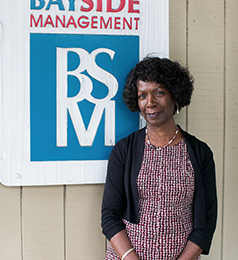 Pauline Smith
Pauline Smith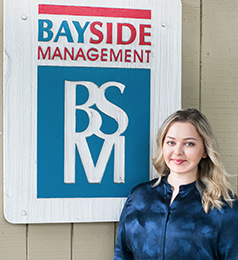 Victoria Taylor
Victoria Taylor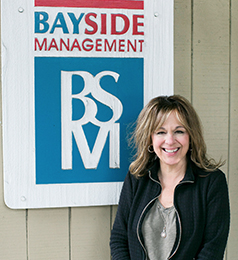 Yvette Perreca
Yvette Perreca Anthony Fregoso
Anthony Fregoso Anthony Thompson
Anthony Thompson Drew Reischl
Drew Reischl Nick Lange
Nick Lange Collette Counter
Collette Counter Justin Barton
Justin Barton